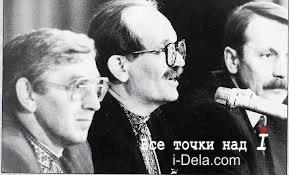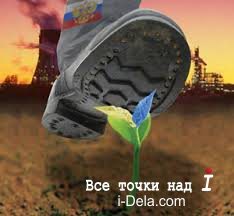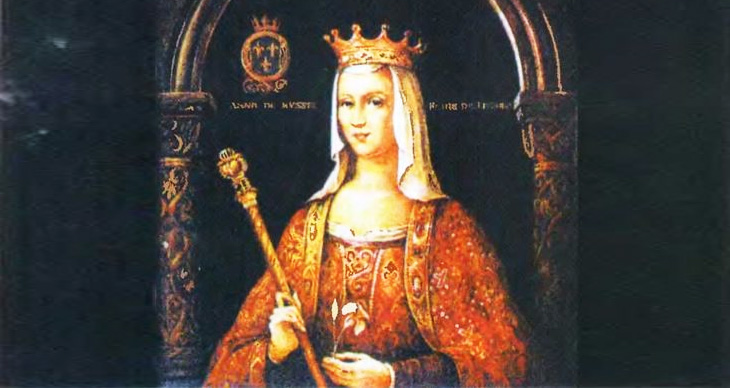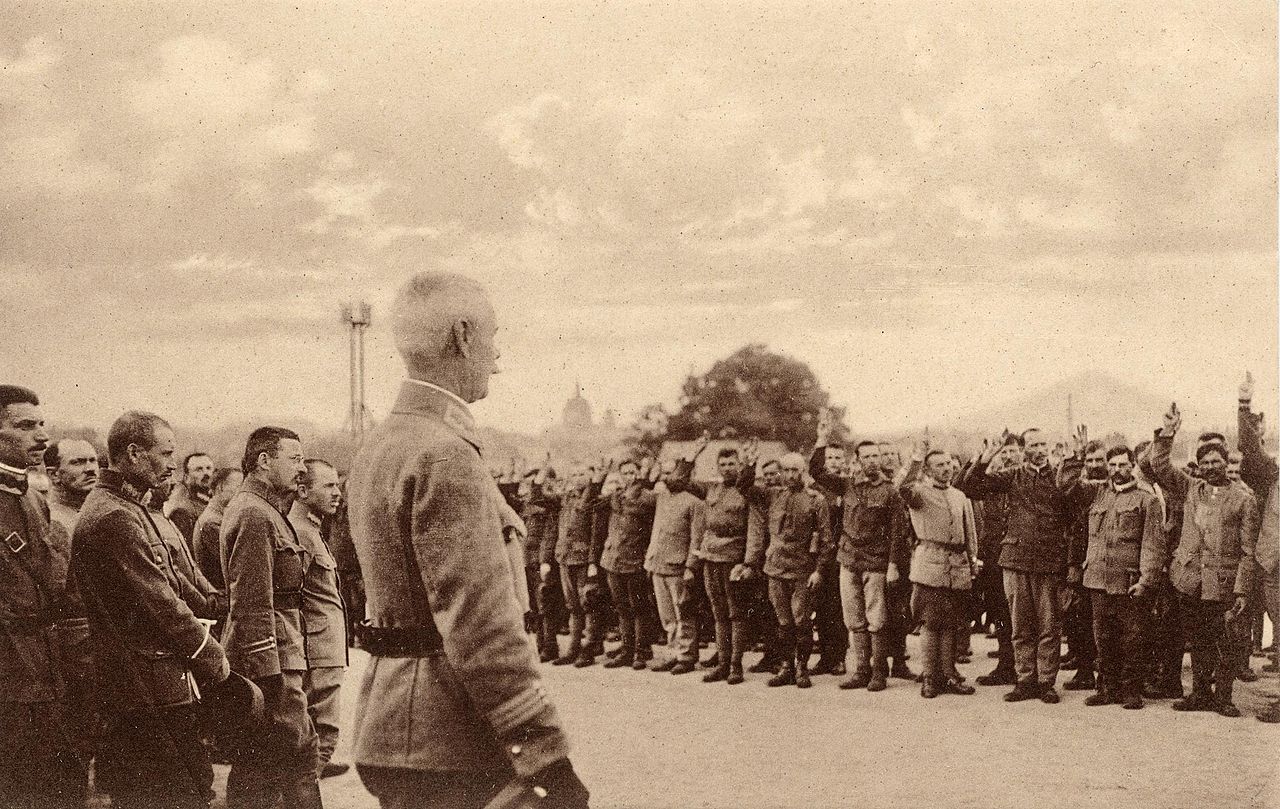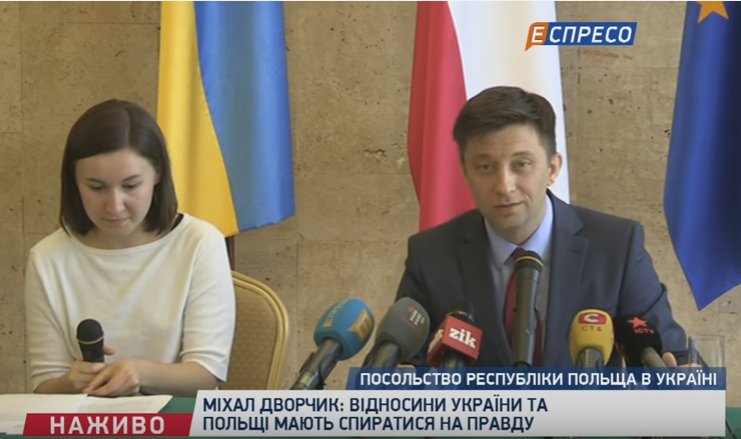Somehow, these turbulent times have conjured up the Minsk negotiations in 1990 and 1991, which were attended by young and little-known politicians from Estonia, Latvia, Lithuania, Belarus, Poland, Ukraine, Moldova and Russia. All of them represented political movements and national fronts. It was a time of breakdown and collapse, a time of change, a time of great expectations.
The Balts, Ukrainians and Belarusians discussed their future and independence from Moscow. The issue of the Baltic-Black Sea energy collector was on the agenda. They talked about the need to create an information axis from Tallinn to Kyiv. Russian democrats, including Gaidar and the Chubais brothers initially spoke in favor of the separation of these new “western republics”, considering it a natural thing. However, another subject gradually surfaced – Eurasian interests and … ‘Russkiy Mir’ (aka the “Russian World” – Ed.). That was a new concept for all of us at that time.
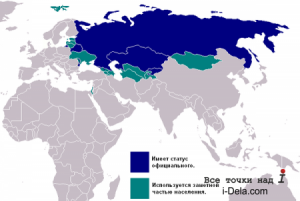
During a break from hot discussions, I agreed with Stanislav Shushkevich (then leader of the Belarusian Popular Front, and Vyacheslav Chornovil (leader of Ukrainian Rukh) that we should find out more about the true position of these Russian democrats regarding the boundaries of ‘Russkiy Mir’. At that time, the Belarusians had great hopes to create a federation with the Baltic community. And much was being done to implement this objective.
So, we returned to the discussion room in fighting spirit. Our Russian colleagues tried to answer our question more or less tactfully. Finally Yuri Afanasiev, a well-known historian, social activist, and author of the catch phrase – “the aggressively obedient majority” – decided to speak out plainly and lay it on the line. He stated that we should not bother wandering among three groves of birches, because ‘Russkiy Mir’ exists wherever that tree grows. This man’s irony stirred up the audience. He added that people should not have any illusions on this subject, that everyone should know this and be able to protect himself accordingly. In other words, the Kremlin would never give up on the idea of Russian imperial space, whatever name it might be called.
This meant that ‘Russkiy Mir’ begins and ends wherever a Russian feels comfortable… at home, added Yuri Afanasiev. Therefore, Moscow believes that any agreement, whether political or economic, will also be cultural. I did not pay much attention to this warning at that time. But, Shushkevych answered: “It seems that a Russian’s home is wherever the Russian language is spoken; the interpretation of history and everything linked to cultural expansion is included here. Interesting thought …”
Yes, it is indeed an interesting thought. ‘National cages’, which would have the status of ‘third-rate’ countries and would be subject to Russian cultural, historical and linguistic dominance – that was and is Russia’s purpose and objective. Therefore, the boundaries of Eurasia coincide and will always coincide with the boundaries of ‘Russkiy Mir’, as outlined by Moscow. This is a manifestation of the Kremlin’s expansion and aggression policy, and the submission of neighbouring countries to the Kremlin’s interests… at any cost.
When does a country become part of ‘Russkiy Mir’? Namely when children learn only from reading Russian fairy tales, watching Russian animated films, only when theater repertoires present mainly Russian drama, when national stages and stadiums echo with Russian songs performed by Russian and local “stars”.
‘Russkiy Mir’ begins and ends wherever the “Russian tongue” is understood as well as or even better than the mother tongue. This linguistic space develops aggressively wherever a Russian tourist unthinkingly requires everyone to speak Russian, whether it be in a restaurant, at the post office, in public transport, wherever he may need services and information.
Have they succeeded in transforming Ukraine into part of ‘Russkiy Mir’? Silly question! Ukraine is proud of the fact that Kyiv speaks Russian. And Moscow is delighted because, after all, Kyiv is their city, the “Mother of all Russian cities”. Ukrainians say that people have never been pressured because of their language or cultural traditions, that Russian culture develops freely in Ukraine. Moscow adds that it is entirely natural because Little Russians (a pejorative for Ukrainians – Ed.) are an integral part of Russians, while Little Russia, Novorossiya (New Russia), and all other borderlands are part of their great land. Even the Little Russian Gogol wrote in Russian, thus divesting himself of an ingrained inferiority complex. Moscow is fighting for the ‘Russian tongue’ with its hands, feet, teeth, tails, horns and hooves, using whoever and whatever has skills, talent and qualities.
Unfortunately, the ‘Russkiy tongue’ has become a weapon of the Moscow Horde, a tool for cultural expansion and a guideline for aggression. Protecting Ukraine lies not only in winning combat operations in the East, but also in the Word… the Ukrainian Word, in the development of an authentic Ukrainian culture, in the renaming of streets, villages, towns and cities. The Russian-Ukrainian conflict is a war where the Word is used alongside real bullets.
It is naive to think that Russian troops will leave Ukraine and everything will get back to normal. No, this will not happen. The ‘fifth column’ will not disappear until another alternative is proposed to Russian cultural dominance, until waiters in cafés address guests in Ukrainian, until TV and cinema screens present quality Ukrainian films and series in beautiful melodious Ukrainian. ‘Russkiy Mir’ will persevere in each Ukrainian home, on every street and in every place until speaking Ukrainian becomes trendy and prestigious.
Ukraine will remain a ‘cage’ as long as Ukrainians are ashamed of their own history and are guided by Russian interpretation of their past. Ukraine will remain a buried time bomb if Odesa continues to pride itself on Catherine the Great’s aggressive exploits while ignoring the memory of heroic Danube Cossacks, the liberation campaign of Lithuanian princes, if the history of Odesa and Mykolayiv are strongly associated only with the history of the Russian Empire.
My Ukrainian friend, an expert on the history of the Ukrainian Cossacks, never tires of giving examples of Ukrainian contributions to the cultural, industrial, scientific, philosophical, linguistic and democratic development in Europe, including in Russia. Unfortunately, his voice is stifled by the louder statements made by Russian patriots of Ukraine and the fact that half of the Ukrainian population speaks Russian. I agree that language is not the only measure of patriotism. Nevertheless, it is language, culture, history and national traditions more than anything else that influence people’s consciousness and the formation of a real political nation.
Cultural and informational fronts in war conditions, when weapons from the arsenal of ‘soft power’ are used daily, can become a foundation for victory. The sooner these fronts are widely open, the sooner will there be a ‘Ukrainskiy svit’ (Ukrainian world) in Ukraine, which will be much more attractive and much more sincere than ‘Russkiy Mir’, and the sooner will peace and quiet reign in Ukraine, Russia and all over Europe.
For the truth is that ‘Russkiy Mir’ is fueled by Ukraine’s ‘kowtowing’ to Russian culture, recognizing only its superiority and greatness. After all, where would we be without Chekhov and Dostoevsky? Without Mussorgsky and Glinka? Without Pushkin and Lermontov? Few people have heard of the St. Petersburg journalist, Alexander Nyevzorov, who argues that much in Russian culture, science, terminology and philosophy has been copied from the West. He claims that such renowned symbols of Russian culture as Pushkin’s characters or matryoshka dolls are nothing more than copies of French poetics and Japanese samurai toys. It is best to learn from the original rather than a copy.

I do not wish to belittle Russian culture, because it is in itself a remarkable phenomenon and the fruit of European culture, but I would like to draw more attention to the fact that Ukrainian culture is just as grand and exceptional. It is not Ukraine’s fault that in Soviet times Ukrainian culture was reduced to men dancing the hopak in bright sharavary (loose baggy trousers)… and this trend continues. Of course, sharavary presentations cannot always compete with a ballet performance.
It is time for us to draw certain conclusions


